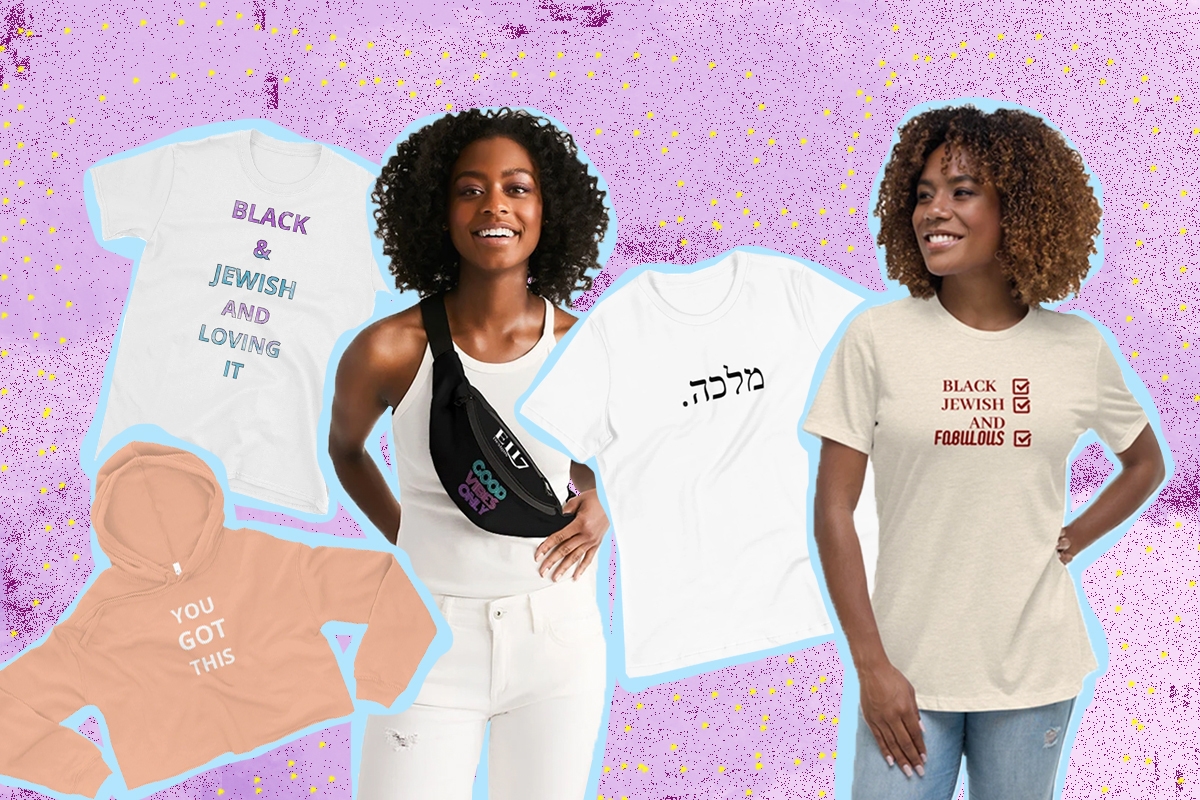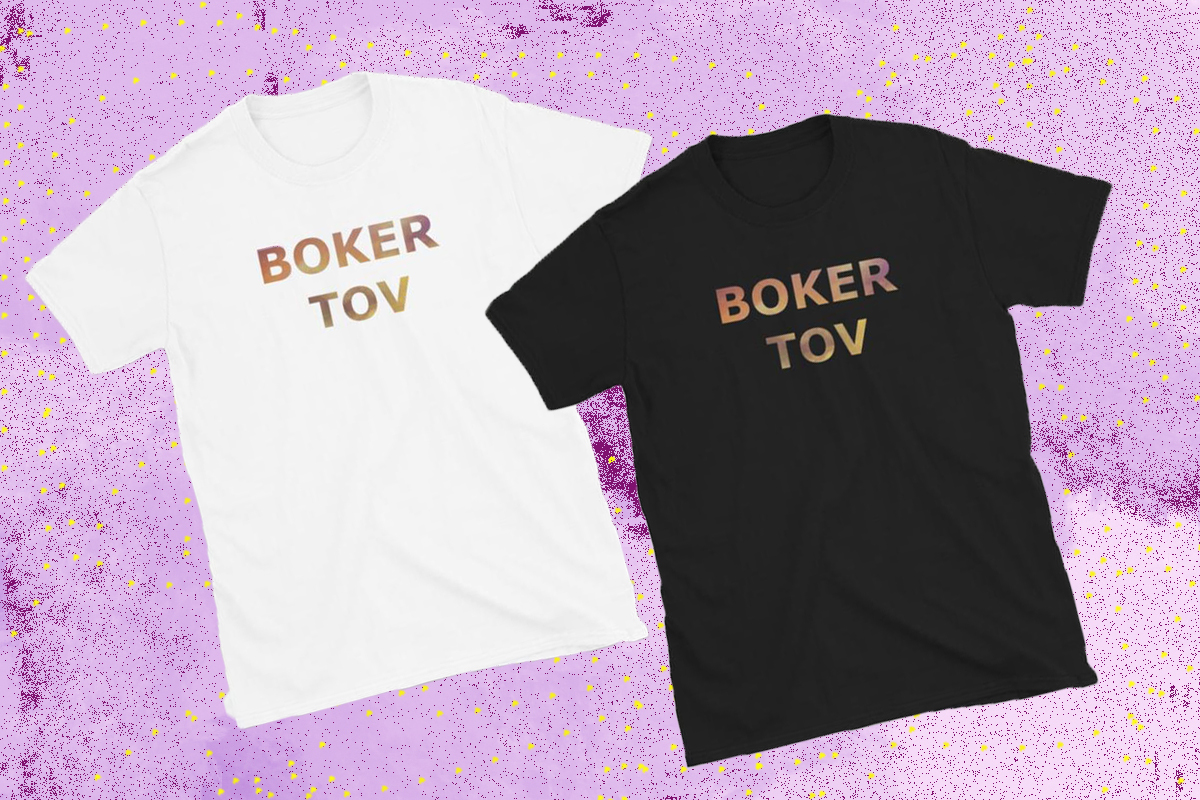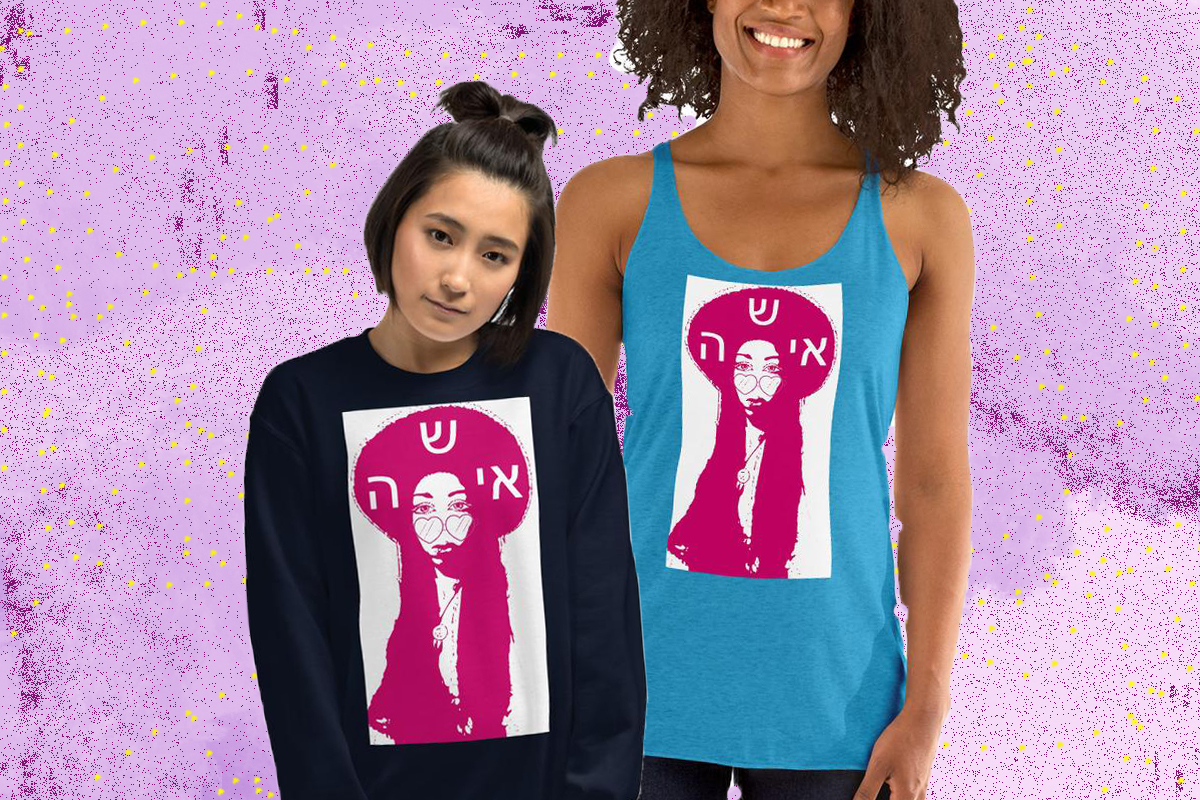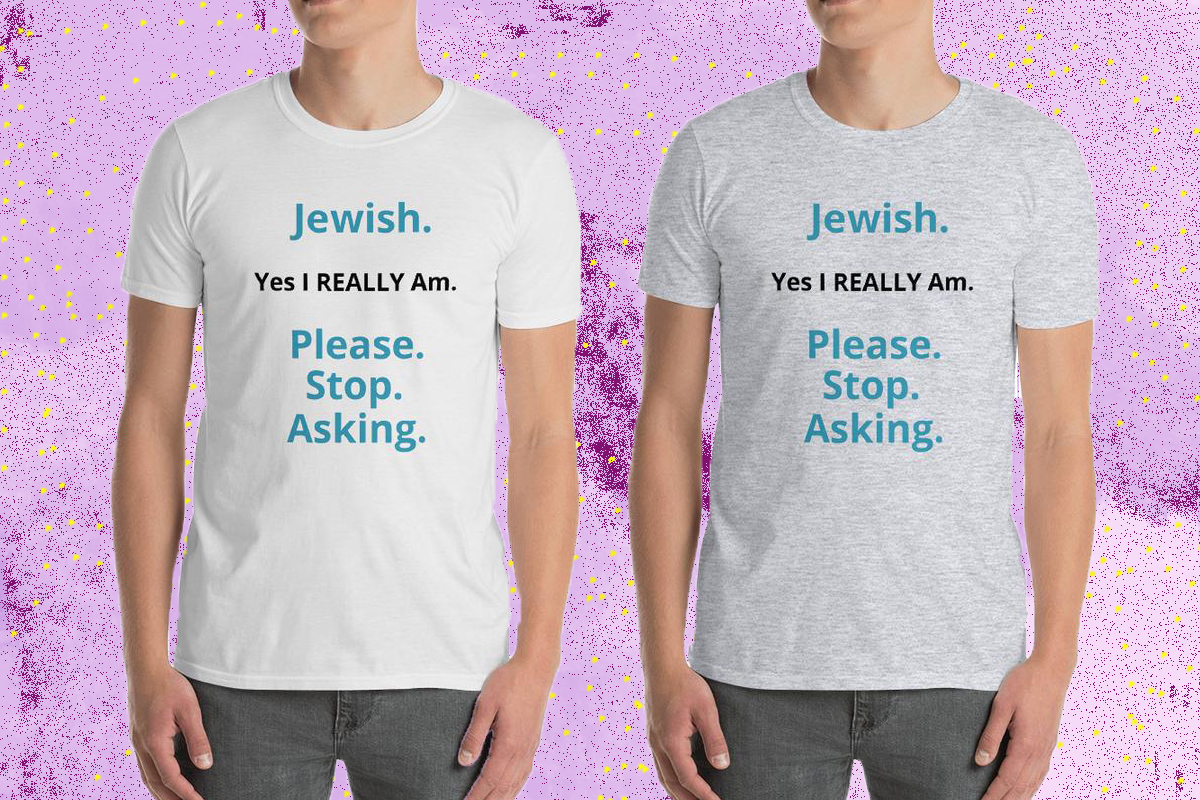This story originally appeared on Alma.
Elisheva Rishon created her clothing brand Eli7 Designs with the mission to empower people — Black and Jewish women in particular. For Elisheva, a Black Modern Orthodox millennial living in Los Angeles, her collections celebrate some of her own identities, like The #Jewishvibe Collection, The Melanated Beauties collection and the Ethnic-Racial Celebration Collection. Selling everything from sweatshirts to T-shirts to shoulder bags, many of these designs include affirming words that celebrate a multiplicity of identities, especially those who are marginalized.
I was inspired by Elisheva’s mission to center Black and Jewish pride in her fashion. Her positivity and commitment to empowerment were clear when we chatted over email, where we discussed her brand, Jewish values, beauty as resilience and more.
This interview has been lightly edited and condensed for clarity.
What inspired you to found Eli7 Designs?
My natural coping mechanism when faced with endless negativity is to counteract it with beauty — and that’s the place that Eli7 Designs comes from. I wanted to make something in fashion that would make people feel both good and empowered by their identity.
On your website, the company is described as “A Modern Twist on Empowerment Fits.” Will you elaborate on what that means to you?
The majority of my brand focuses on making you feel something real. My brand also intentionally has different collections that at some point intertwine to emphasize that everyone is connected and we are all one people. I also designed them in such a way that my apparel can easily be dressed up or down to suit everyone’s fashion style.
A lot of your clothing includes Hebrew phrases and words such as “Boker Tov” (good morning), “Koach” (strength), and “Hashem” (God). Why is it important to you to have Hebrew as a part of your brand?
Hebrew is essential to my Jewish identity. It was the second language I was learning while growing up, and it is a language that is so beautiful because behind every word is a deeper cultural, spiritual and amazing meaning that speaks to my soul.
Additionally, Hebrew sayings such as “Gam Zu L’tovah” [this, too, is for the good] or “Hashgacha Pratit” [anything that happens is all a part of God’s plan] are universally significant mantras of Jewish culture no matter whether you are Orthodox, Conservative, Reform, secular, etc. They tell a story of the essence and resilience of the Jewish people.
Can you talk about your own relationship to Judaism? How were you raised and what does your practice look like today?
I was raised in the Orthodox Jewish communities of Crown Heights and Flatbush [Brooklyn]. We went to shul every Shabbat and all the chagim [holidays], even when I didn’t want to. When I was younger, being Jewish to me meant being “religious” in a robotic, unquestioning way. Today I am much more relaxed in practice and consider myself to be very Modern Orthodox. I typically don’t attend shul because I’m not into the prying social interactions. Today I believe that being Jewish means building your own special connection with Hashem, connecting with Jewish culture on your own terms and being a light to the world.
I love your designs that state with pride an intersection of identities like “Black, Jewish, and Fabulous.” How does your identity as a Black Orthodox Jewish woman inform your commitment to creating empowering clothing?
Growing up as a Black Orthodox Jewish woman in America has been a super challenging experience that never ends. There will be many tears, rejection, untold amounts of patience and poor assumptions made about your character by some people just because you are Black.
So I say “Black, Jewish, and Fabulous” in my design because it speaks to me and so many other Black Jewish people in America who have been told that:
Their Black Jewishness is a bad thing.
Their Black Jewishness is a strange thing.
Their Black Jewishness is a suspicious thing.
Their Black Jewishness is an impossible thing.
No, their Black Jewishness is more than a good thing — it’s a FABULOUS thing! And that’s on PERIOD!
What’s your most popular/bestselling design?
My Isha graphic art top and my Koach apparel are equally my No. 1 bestseller. I have gotten amazing messages and voice notes from customers excited or in tears, telling me how, when they wear my apparel, they feel so happy and empowered. One woman told me she put on makeup for the first time in 10 years because when she wore my top, she felt like a real Isha, a real woman, and wanted the world to know it!
Others have told me how amazing they feel when they wear any of my Koach items because it fills them with Jewish pride. Being a Jew today in America means dealing with a huge spike in anti-Semitism, which historically suggests that we should hide our Jewish identity. But my brand is doing the exact opposite. I want Jews to be proud of being Jewish, even in times like these, because honestly, being proudly Jewish never goes “out of style.”
Have you faced any obstacles while building your brand?
Unfortunately, yes I have.
I was one of my own biggest obstacles when building it. I started it while getting out of a very bad relationship, living in a new community without the support I needed, and not being financially stable. But because things in my life were so rough, I had to make the brand because only something that focuses on positivity and empowerment could dispel all the darkness in my life. And more importantly — only the hope that my work could make other people feel good kept me going.
A short while after beginning my brand, I experienced a devastating reaction to my big reveal that I, a Black woman, was behind Eli7 Designs. This was because in the very beginning, I usually posted pictures of non-Black people and never had an “about me” page on my site or on IG. I hid my identity to protect my brand. The initial fallout of the big reveal included losing followers on IG, having people cancel collaborations with me, having an influx of canceled orders, and receiving messages accusing me of “appropriating Judaism,” and people doubting my Jewishness that drained me mentally and emotionally.
There were many times I almost shut down my brand because of the toxicity of it all, but once I reminded myself why I was doing it and why it matters, I took up the reins again.
What’s your hope for Eli7 Designs’ future? Any new projects in the works?
B’ezrat Hashem, Eli7 Designs will be expanding into other categories besides apparel and accessories soon!
My long-term goals for Eli7 Designs is to create a facility for Orthodox Jewish women and girls that will address their specific needs in the community that I have not seen tackled properly. It is a long way down the road and will require a lot of funding, but it is a dream of mine I have had for years. I’ve lost so many friends in various different ways because such a place doesn’t exist yet. I want to change that.
What is one thing you wish people knew about being a Black Orthodox Jewish woman in America today?
I want people to know that I don’t enjoy talking about the struggles of growing up as an Orthodox Black Jewish woman in America! It makes me feel very depressed to speak on these things. I would rather talk about fashion, makeup and religious Jewish concepts. The only reason I speak on the struggles is because people continue to repeat the same ignorant behavior towards me in reaction to my Blackness.
I also want people to know that Orthodox Jews are just like every other Jew, they are not “bad” or “worse.” They have some similar issues that exist both in the Jewish and non-Jewish communities in America. It’s just a different culture. I do not like the trend of demonizing Orthodox Jews. Please stop. Thank you!
JTA has documented Jewish history in real-time for over a century. Keep our journalism strong by joining us in supporting independent, award-winning reporting.









